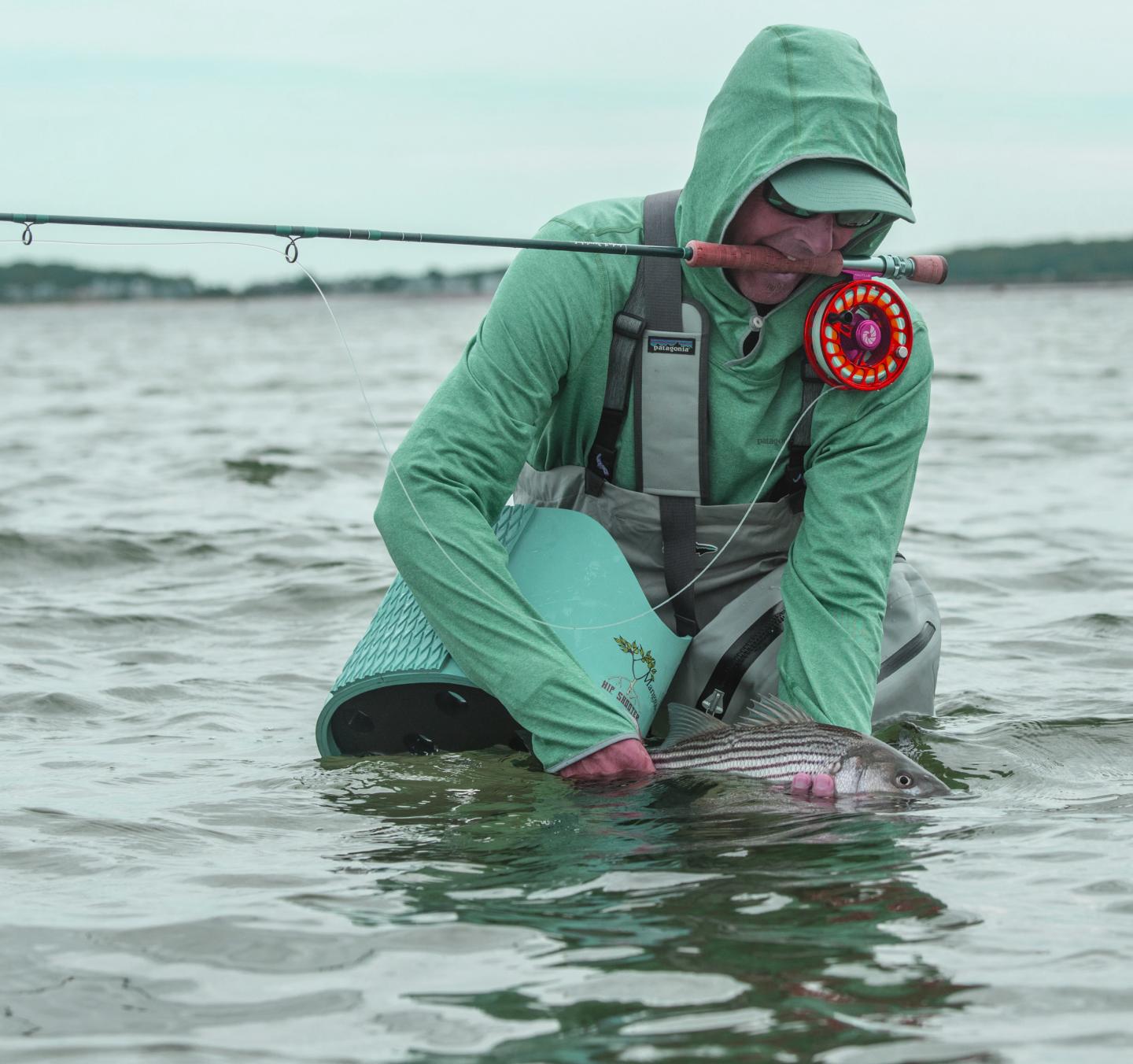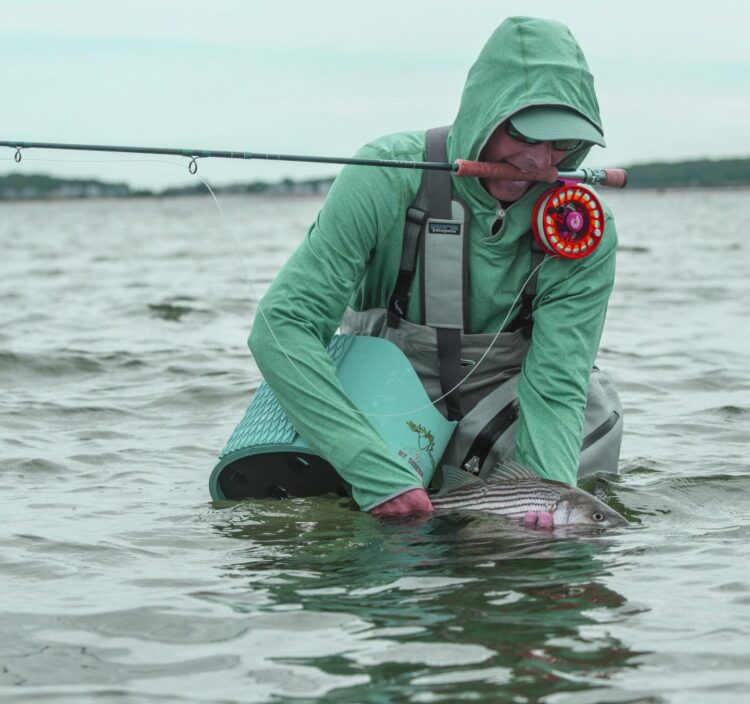Scientists need to work closely with resource management agencies to assess impacts

Credit: Andrew Burr
AMHERST, Mass. – New developments in recreational fishing technology–from the use of aerial drones and social media scouting reports to advances in hook design–are creating challenges for fisheries management and effective policy making, according to a new study co-authored by University of Massachusetts Amherst researcher Andy Danylchuk.
With the opening of the spring fishing season, millions of recreational fishing aficionados across North America are dusting off their tackleboxes, fitting together their rods, and heading to the bait and tackle shop to purchase the latest in fish-catching gear. But what impact does all that new technology have on the fish themselves?
“There are still so many unknowns,” says Andy Danylchuk, professor of fish conservation in the UMass Amherst department of environmental conservation, and co-author of a new paper that investigates the relationship between fishing technology and fish ecosystems. “There’s more attention paid to products we use with our pets than to what we use to try to catch fish in our streams, lakes and oceans.”
Fishing technology has come a long way since the days of hook and worm. Today one can buy battery-powered, artificial lures that wriggle like minnows and are slathered in fish-attracting scent. Underwater cameras and fish finders help anglers not only seek out their targets but also observe as fish either approach or reject the bait. Aerial drones scan for fish and even deliver lures to them. Social media helps pinpoint, in real time, what fish are biting where. Even the seemingly simple hook has been completely redesigned to better reel in the big one. And it’s not as if recreational fishing in streams, lakes, and in the ocean is a niche-activity–it is the second most popular leisure activity in North America, falling just behind gardening.
“From improvements in finding and catching fish, to emulating their natural prey and accessing previously inaccessible waters, to anglers sharing their exploits with others, technology is completely changing all aspects of recreational fishing,” says Steven Cooke, professor of fish ecology in Carleton University’s department of biology and the study’s lead author.
Without knowing what impact all this advanced technology has on the fish and their aquatic ecosystems, it has become difficult for fisheries managers to monitor the health of the fishery, and to ensure that the fishing experience is a positive one. “Recreational anglers have always been a strong voice for conservation,” says Danylchuk. “If something changes and they are no longer catching fish, they’re one of the first stakeholder groups to raise the alarm about possible environmental harms.” It turns out that what’s good for the fishing community is also good for the fish: more, and healthier fish means a more enjoyable, successful fishing experience.
What this means for the research and management community is that more attention needs to be paid to the effects of high-tech fishing equipment. “An important message here is that resource management agencies need to share their experiences and that scientists should more intensively study the impact of innovations in recreational fishing,” write the study’s authors. “If science can’t keep up in terms of evaluating the impacts of technological innovation to help inform management and policy,” says Danylchuk, “it can be really detrimental to the fish, which may ultimately mean fewer fish, and a worse fishing experience for anglers.”
###
Contacts: Andy Danylchuk, [email protected]
Daegan Miller, [email protected]
Media Contact
Daegan Miller
[email protected]
Original Source
https:/
Related Journal Article
http://dx.





